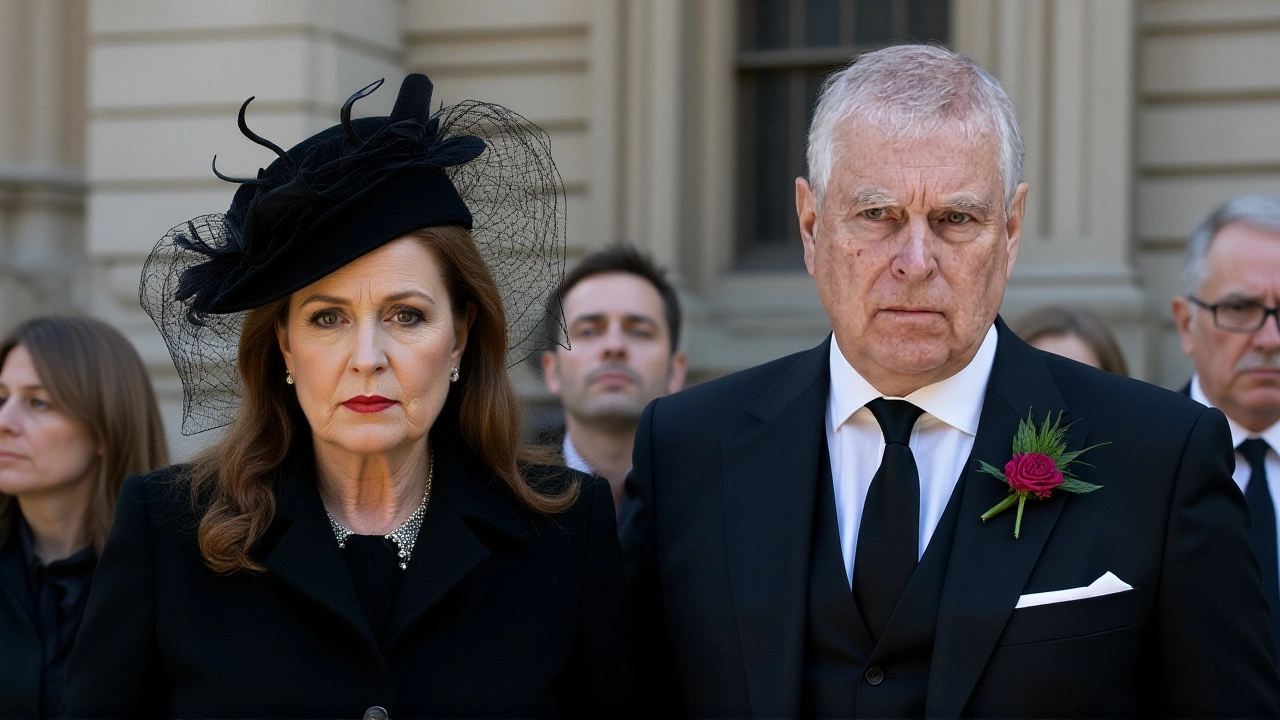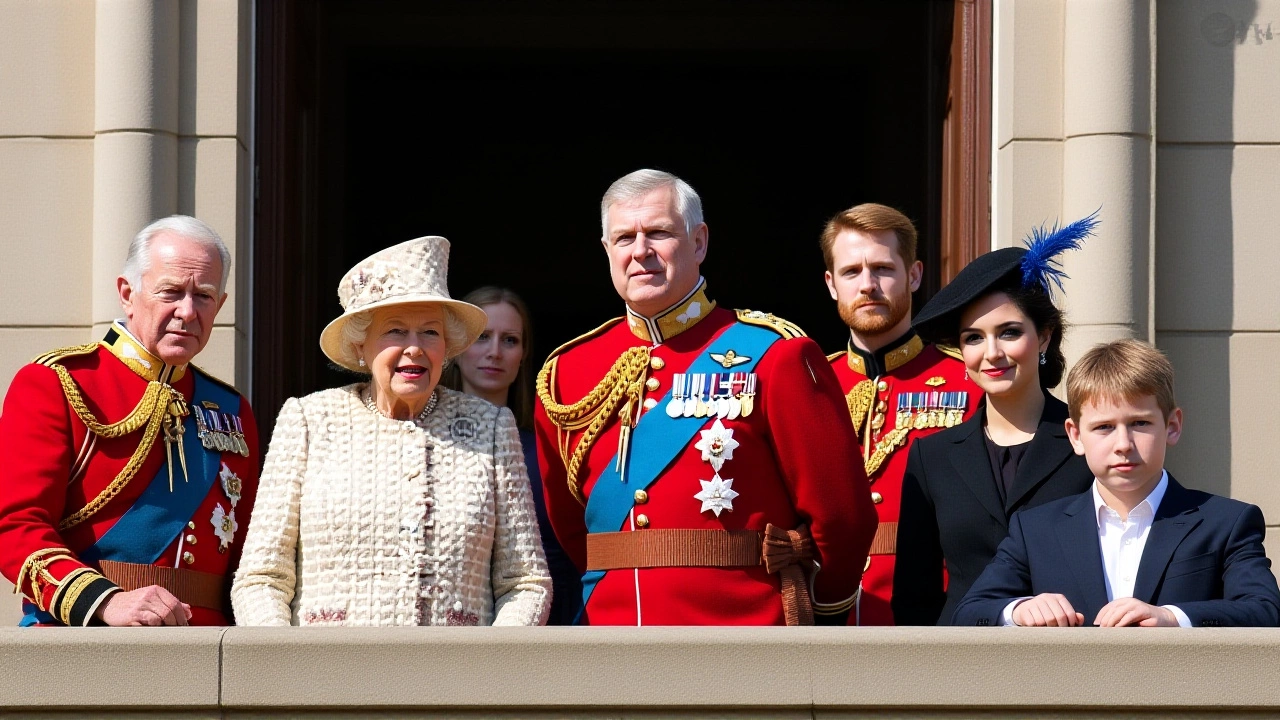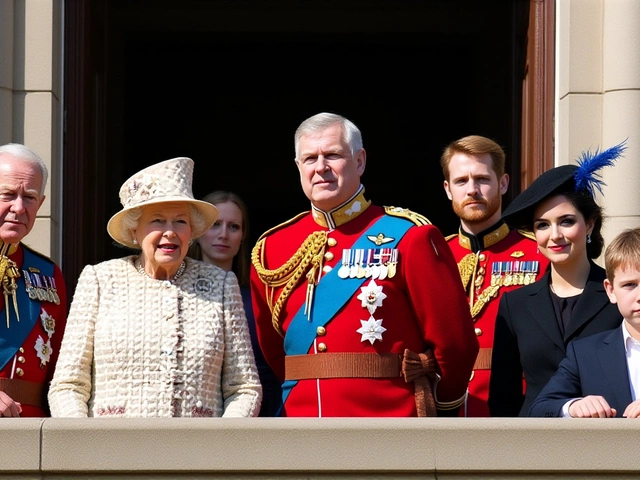When Prince Andrew Albert Christian Edward, Duke of York of the British Royal Family, announced in a personal statement that he would no longer use his royal titles, the news cut through the usual palace routine like a sudden gust of wind on a summer afternoon.
The declaration came on at roughly 8 p.m. BST, broadcast from Buckingham Palace in London. In the same breath, King Charles III – formally Charles Philip Arthur George – was said to have approved the move after private discussions with his brother.
Here’s the thing: the decision is framed as a way to stop the "distractions" caused by the long‑running sexual‑assault accusations lodged by the late Virginia Giuffre and the lingering shadow of his friendship with the late financier Jeffrey Epstein. While Andrew will retain the legal styling of "His Royal Highness Prince Andrew," he will stop using the "Duke of York" moniker, the GCVO knighthood, and his place in the Order of the Garter.
Background: A Decade of Controversy
Prince Andrew’s troubles date back to November 2019, when he stepped back from public duties after media outrage over his ties to Epstein. The former U.S. financier had been convicted in 2008 for soliciting a minor for prostitution and later faced federal sex‑trafficking charges before his death in August 2019.
In August 2021, Giuffre filed a civil suit in the Southern District of New York, claiming the prince assaulted her on several occasions between 1999 and 2002 at Epstein’s New York Manhattan apartment, the Palm Beach estate, and the private island of Little Saint James in the U.S. Virgin Islands. Andrew settled the case in February 2022 for an undisclosed sum, without admitting liability.
Fast‑forward to December 2024, a media report hinted that a close confidant of the duke might have been a suspected Chinese intelligence asset, stoking fresh worries about foreign influence inside the royal circle.
The Announcement: What Was Said
During the Prince Andrew Title Relinquishment AnnouncementBuckingham Palace, the prince released this excerpt:
"In discussion with The King, and my immediate and wider family, we have concluded the continued accusations about me distract from the work of His Majesty and the royal family. I have decided, as I always have, to put my duty to my family and country first. I stand by my decision five years ago to stand back from public life. With His Majesty's agreement, we feel I must now go a step further. I will therefore no longer use my title or the honours which have been conferred upon me."
He added that he continues to "vigorously deny" the allegations, underscoring that the relinquishment is a personal step rather than an admission of guilt.
Reactions Across the Isles and Beyond
Public reaction was mixed. Some royals watchers on Twitter called the move a "necessary reset," while others argued it was too little, too late. In the UK Parliament, Sir Keir Starmer, Leader of the Opposition, noted that the royal family’s handling of the saga has "tested the limits of public tolerance for privilege."
Meanwhile, Sarah Ferguson, the former Duchess of York, expressed sadness that she would also have to cease using the title "Duchess of York" after more than three decades of charitable work under that name.
Legal and Title Implications
Legally, the dukedom remains attached to Andrew as a hereditary peerage that can only be removed by an Act of Parliament. He will still be styled "His Royal Highness Prince Andrew," a birthright that cannot be stripped by royal decree. However, the public and official use of "Duke of York" disappears from all royal communications, press releases, and any future engagements.
- GCVO (Knight Grand Cross of the Royal Victorian Order) – relinquished
- Order of the Garter – stepped down
- Royal patronage appointments – currently under review
These changes mean the title will sit vacant upon Andrew’s death, as his two daughters – Princess Beatrice and Princess Eugenie – cannot inherit under the 1926 Letters Patent, which limit the dukedom to male heirs.

Future of the "Duke of York" Title
Historically, the dukedom has been given to the second son of the reigning monarch since 1385. With Prince William now first in line, the next potential holder could be Prince Henry Charles Albert David, the second son of King Charles III, who currently holds the title Duke of Sussex.
Royal commentators suggest that Charles may reserve the title for a future prince who will be "ready to carry its historic weight," but no official word has been given. The official royal website, royal.uk, announced it would update Prince Andrew’s profile by 18 October 2025 to reflect his new status.
Broader Impact on the Monarchy
The episode adds another chapter to a series of reputational hits the British monarchy has endured in the past decade, from the 2021 "Panama Papers" revelations to the 2023 resignation of a senior royal aide over alleged misconduct. By voluntarily giving up his titles, Prince Andrew may be attempting to shield the institution from further media storms, allowing King Charles III to focus on his own agenda – notably the push for constitutional reform and climate initiatives.
Yet the move also raises questions about accountability: can a royal simply step back from a title without legislative scrutiny? Legal scholars argue that while the monarch can advise, any alteration to a hereditary peerage would traditionally need Parliament’s blessing.
Key Facts
- Date of announcement: 17 October 2025, 20:00 BST
- Location: Buckingham Palace, London
- Titles relinquished: Duke of York, GCVO knighthood, Order of the Garter seat
- Retained status: His Royal Highness Prince Andrew (by birth)
- Impact on ex‑wife: Sarah Ferguson will no longer use Duchess of York
Frequently Asked Questions
Why did Prince Andrew decide to give up his titles now?
The palace stated that ongoing accusations – notably the civil suit by the late Virginia Giuffre and renewed scrutiny over his ties to Jeffrey Epstein – were distracting the royal family’s work. By surrendering the public use of his titles, Andrew hopes to reduce media focus on himself and allow King Charles III to pursue the monarchy’s agenda without constant controversy.
Does the relinquishment affect Prince Andrew’s legal standing as a duke?
No. The dukedom is a hereditary peerage that can only be removed by an act of Parliament. Andrew will remain the legal Duke of York, but he will no longer be addressed by that title in any official or public capacity.
What happens to the Duchess of York title?
Sarah Ferguson, who retained the Duchess of York title after her 1996 divorce, must also cease using it. She will revert to being known simply as Sarah Ferguson, though she will likely continue her charitable work under that name.
Who is next in line for the Duke of York title?
Traditionally the title goes to the second son of the monarch. With King Charles III’s second son, Prince Henry (the Duke of Sussex), currently holding a different dukedom, speculation points to him as a potential future Duke of York, though no official decision has been made.
How does this affect the monarchy’s public image?
The move may be seen as a gesture to lessen controversy, allowing the royal family to refocus on its core duties and charitable initiatives. Critics argue it sidesteps deeper accountability, but supporters believe it helps the institution move beyond a decade of scandals.

